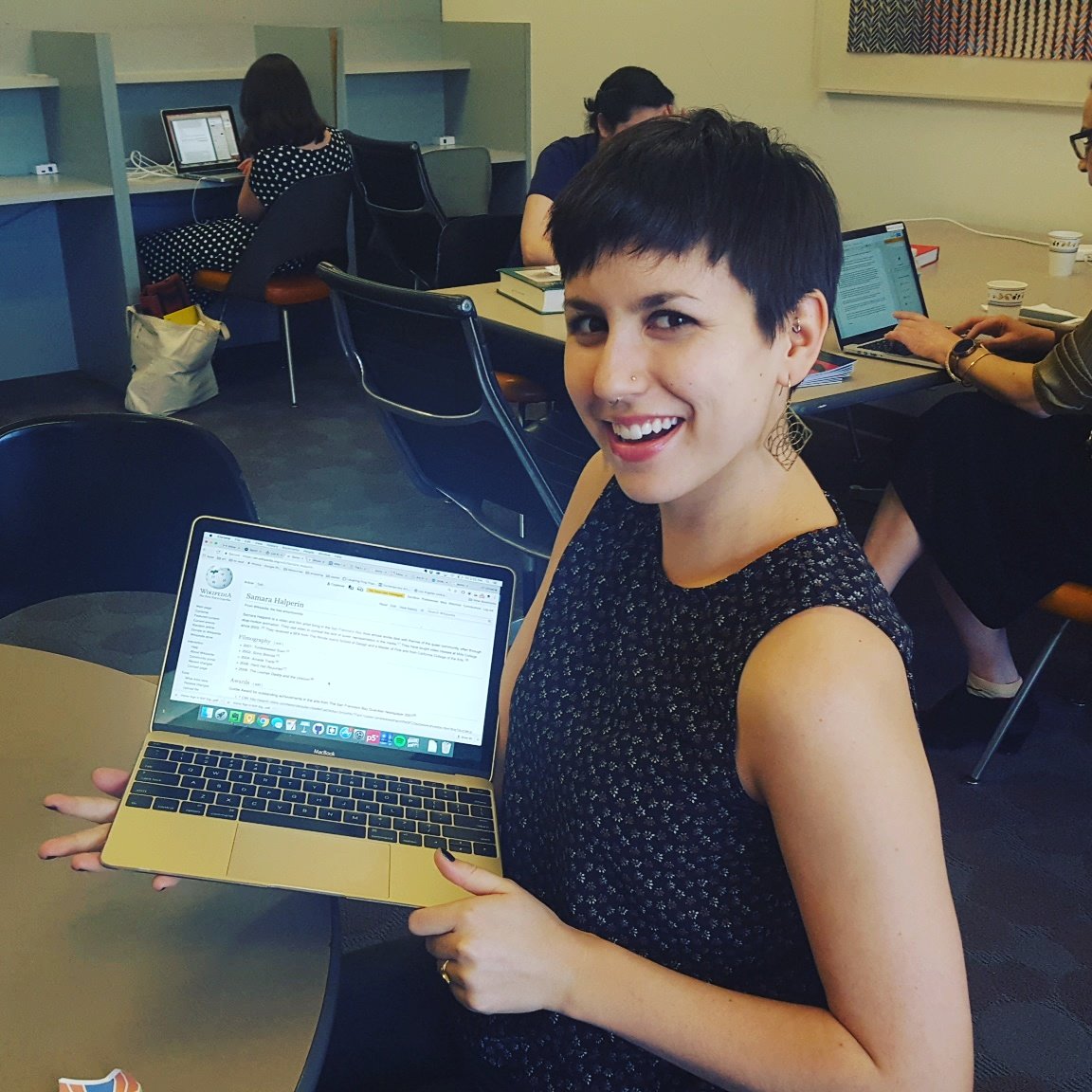Wikipedia Edit-A-Thon: Deconstructing Gender Bias

Images Courtesy of voidLab
Widely discounted by academia as a credible source, yet ranking 6th for website traffic worldwide, Wikipedia stands at a unique point of influence. It is perceived to be unreliable, yet many turn to it first for information. Despite the fact that Wikipedia allows anyone to contribute an article about nearly any topic, however, an unequal representation of women still persists. With women making up less than 15% of Wikipedia editors, it is impossible for Wikipedia to publish truly balanced information.
On March 3rd, people of all gender identities were warmly welcomed into the UCLA Arts Library to deconstruct this gender bias and contribute to the fair representation of women at the Art + Feminism Wikipedia Edit-a-Thon. This event was held by voidLab, a feminist collective that meets weekly at UCLA to discuss intersectional feminism and organize events and exhibitions. This event focused on writing articles about female artists to help increase their representation within Wikipedia. Participants were taught how to become Wikipedia contributors, so that they could contribute at the event and continue on their own time. They were able to choose from a prepared list of artists who either did not have an article to begin with, or had only a semi-completed article. They also had the opportunity to write about an unlisted artist that they believed deserved Wikipedia recognition.
In the age of fake news and “alternative facts”, reliable sources of information are more important than ever. While Wikipedia does allow open contributions, the writing and editing process is actually quite structured in order to prevent false information from being published. All information must come from an outside source such as a book or online publication, and each article should have at least three sources. Even if the writer has done their own original research, it cannot be published unless it has already been published in a reputable source. Once published, the article can be edited by other Wikipedia contributors, who must list the changes they made so that all edits can be tracked.
While Wikipedia may be thoroughly edited, the underrepresentation of women calls its overall legitimacy into question. This discrepancy can be attributed to the tone surrounding Wikipedia editing. Masculine communication styles can be more suited for the purely factual nature of Wikipedia, as women are often socialized to present their knowledge as suggestions to appear nonassertive and thus more feminine. Just like in many discussion spaces, men often feel entitled to take up more space, leaving women feeling unwelcome and unable to present their ideas, even when they are very knowledgeable about a subject. This gender bias leads to fewer articles written about topics that are important to women, such as female artists. No source can be truly unbiased when the female voice is missing.
According to the contribution rules, articles may not be written about people that are not “notable” figures who have received “significant coverage.” This can become problematic because female artists are featured less frequently in museum exhibitions and receive less media and historical coverage than men, thus making many unable to meet the notability requirement. Of course, their lack of a Wikipedia article only reinforces their perceived lack of legitimacy. voidLab member Kate Hollenbach explained that many people still look first to Wikipedia for information, regardless of whether it can be used as an academic source. If female artists aren’t getting fair representation, the world will not see them as the reputable artists that they are. As Hollenbach put it, “Anyone who’s anyone has a Wikipedia article.”
With the help of Art + Feminism Edit-a-Thons held around the globe, the representation of women in Wikipedia can be brought up to its rightful level. voidLab’s Edit-a-Thon successfully contributed 19 new articles, and participants will hopefully be inspired to continue contributing on their own. You can get involved by signing up to be a Wikipedia editor here. voidLab’s training resources and research sources are available here.




